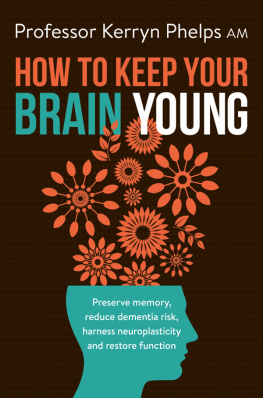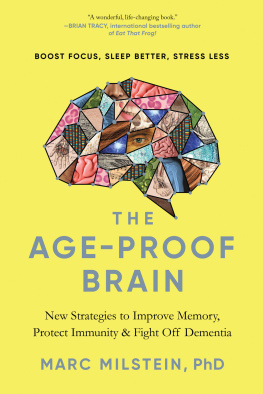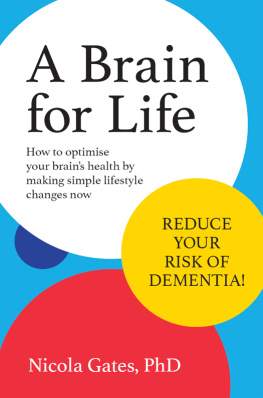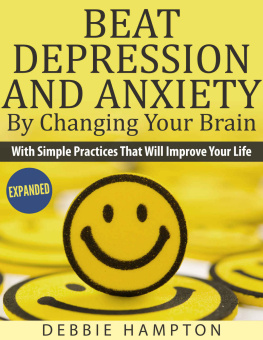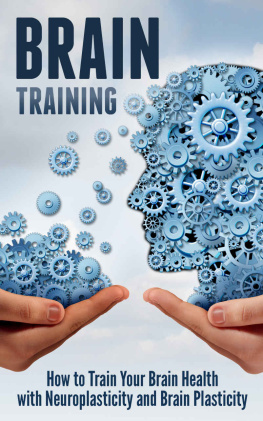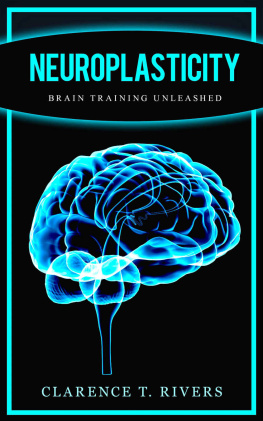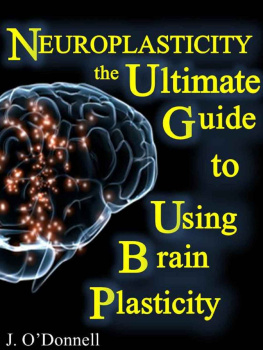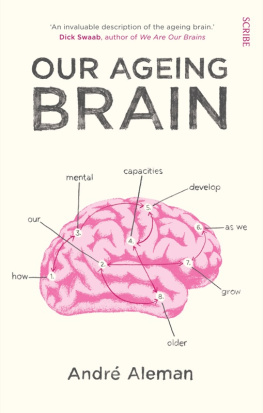About How To Keep Your Brain Young
Professor Kerryn Phelps AM, Australias most trusted GP, reveals how to keep our most important organ at its best throughout our lives.
In her standout new book, Professor Phelps addresses what we all fear: losing mental function as we age. While ageing physically is inevitable, ageing mentally is not. In this accessible book, Professor Phelps lays out the basics of the brain and the simple, everyday practices for keeping our brains younger for longer.
Through the ongoing science of neuroplasticity, we know that our brains are continually capable of rewiring and relearning. Professor Phelps applies this knowledge to an array of simple, sustainable lifestyle habits, showing how anyone, whether starting at 40 or 80, can age gracefully and keep mentally sharp. How to Keep Your Brain Young details the fundamentals of a healthy brain, from diet and exercise to gut microbiome and mindfulness techniques, and shows us how to feel sharper, kick out the brain fog and retain mental acuity in later life.
Drawing on years of clinical experience and the latest research, How to Keep Your Brain Young is the ultimate guide for happy, healthy grey matter.
Also by Prof Kerryn Phelps AM
General Practice: The Integrative Approach
Ultimate Wellness: The 3-Step Plan
The Cancer Recovery Guide
The Mystery Gut
(with Dr Claudia Lee & Jaime Rose Chambers)

Contents
To Jackie, our family and friends.
To my teachers and mentors.
To my patients and their families.
To the people who have challenged me
intellectually to search for ways to a better world.
You have all contributed to the experiences and
thoughts that form precious memories.
May they last a lifetime.
Introduction
One of the great questions you will face as you grow older is this: will your brain go the distance? Will your physical health remain strong, but your brain function fail to keep up?
Your brain is such a precious organ. It governs everything you do and everything you think. Its important to look after it throughout your entire life.
Like so many people, I was fascinated by the life story of Professor Stephen Hawking, who had so much to say about quality of life, despite his neurodegenerative physical disability caused by motor neurone disease, because he had an awesome intellect. He understood, perhaps more than anyone, just how precious the brain is.
I have been very lucky that my disease has not been a serious handicap, indeed it has probably given me more time than most people to pursue the quest for knowledge, he said.
Decades of medical practice and talking to patients about their health concerns have shown me that many peoples greatest fear as they get older is the possibility of losing their intellectual capacity, and the implications that might have for their quality of life, independence and autonomy.
But other people just dont seem to understand how precious their brain is. Some actively or mindlessly damage their brains, while others just dont make the most of the brain they have.
In medical practice, we do what we can to identify risk factors so that we can predict and prevent disease, or intervene at an early stage. Then there are times when we diagnose an established disease at a stage when little can be done to reverse or cure it. In neurology, the holy grail is the search for the keys to prevention or cure of dementia and other neurodegenerative diseases. In the meantime, we have to gather as much evidence as possible about what you can do to optimise brain function and to maintain your brain health into old age.
Some people are dealt a bad genetic hand, making them more likely to develop some form of dementia as they age. That does not have to be inevitable, however. The purpose of this book is to look at the many ways you can optimise your brain health, and encourage you to make changes that will protect and even enhance your brains essential functions throughout life.
I decided to write this book to help you do whatever you can to keep your brain young.
PART 1
BRAIN BASICS
1
How Your Brain Works
Before you can understand how to keep your brain young, you first need to understand how your brain works.
This is not a neurology or neurophysiology textbook, so Ill spare you a complex discussion about the brains known and unknown physiology and biochemistry.
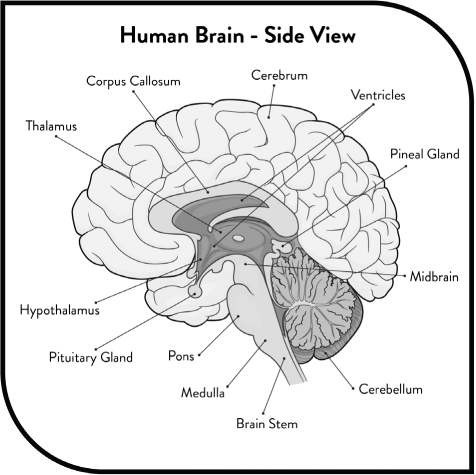
Still, we will need to discuss the various parts of the brain and what they do, in order to help you develop a clear understanding of how you can maintain your brain health.
The brain is divided into areas according to their anatomical positions. Each area has particular jobs to perform. It follows that when something goes wrong in a particular part of the brain, the functions of that area will be affected.
It is also worth looking, in broad terms, at what can go wrong with different parts of the brain, so that you can better understand the rationale behind the preventive strategies I recommend.
Well start by looking at the main regions in the brain and what happens there.
CEREBRUM
The cerebrum is the largest part of the brain and is divided into the left and right hemispheres. The cerebral cortex is the so-called grey matter of the brain, the folded outer layer of the cerebrum with white matter underneath. The two hemispheres are connected by a bundle of fibres called the corpus callosum, which transmits messages between the two sides. Each hemisphere controls the opposite side of the body, so if there is damage, say from a stroke in the left side, the right arm or leg might be weakened or paralysed.
The left hemisphere is dominant in over 90 per cent of people, explaining the predominance of right-handedness among the population.
It was once believed that you could be right brain dominant or left brain dominant and that this determined your personality and thinking style. You were a left brain creative or right brain rational thinker rather than intuitive. With more recent advances in imaging technology, it appears this is no more than a figure of speech. A study at the University of Utah in the United States in 2013 used specialised MRI brain scans to determine if there was more activity on one side of the brain or the other depending on personality. They found no correlation or gender differences.
The cerebral cortex is essential for consciousness, memory, attention, thinking, emotions, speech, decision-making and processing information from the outside world via the senses (sight, sound, smell, taste and touch).
The right and left hemispheres of the brain are further divided into lobes: occipital, temporal, parietal and frontal. The different lobes each have some distinctive roles, but they are also highly interconnected.
Occipital lobe: located at the back of the brain, the occipital lobe is responsible for processing vision, or making sense of what your eyes see. Damage to the occipital lobe can result in difficulties with visual perception of light, colour and movement. At the extreme, this would mean total blindness.

